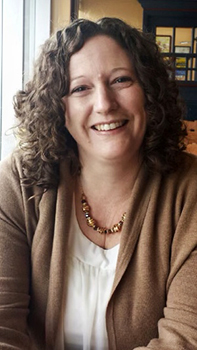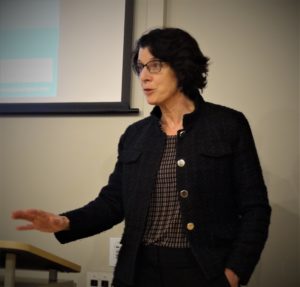At a virtual Capitol Hill briefing, Duluth port director describes Sea Grant’s impact
It’s always nice to have one’s praises sung, and Deb DeLuca, director of the Duluth Seaway Port Authority, helped communicate the value of Sea Grant during a recent Capitol Hill briefing. The virtual briefing was held July 29 and moderated by Susan White, director of North Carolina Sea Grant. (Watch video of the briefing here.)
Sponsored by the Sea Grant Association, the briefing for members of Congress, their staffs and other interested people was designed to demonstrate the impacts Sea Grant programs have in their home states.
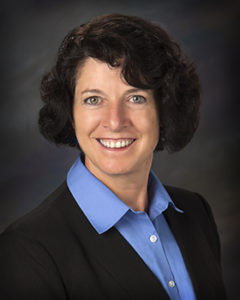
Deb DeLuca (submitted photo).
While DeLuca provided a Great Lakes perspective, other speakers were Beth Ginter, executive director of the Chesapeake Conservation Landscaping Council in Maryland, and Seth Rolbein, director of the Cape Cod Fisheries Trust in Massachusetts.
Of course, it’s no surprise that DeLuca would be a dedicated advocate for Sea Grant; after all, she serves on the advisory councils of both Wisconsin Sea Grant and Minnesota Sea Grant. That dual commitment makes perfect sense, given that the “Twin Ports” nickname refers to Duluth and Superior.
After sharing some facts about her port—the largest by tonnage on the Great Lakes and one of the top 20 in the nation, also by tonnage—DeLuca outlined some of the challenges the maritime transportation industry is facing, as well as concrete ways Sea Grant is helping with those challenges.
Some of DeLuca’s observations:
- There’s been gentrification of the working waterfront in the Duluth/Superior area, and it’s important to work on public perceptions and social license for the shipping industry. While it may seem like all 21st century jobs are going digital, that is not the case. Roughly 8,000 jobs in DeLuca’s region are tied to shipping, and they pay well. What’s more, “These jobs are accessible across a broad range of educational backgrounds,” she said.
- With the boom in outdoor recreation spurred by the pandemic, Sea Grant programs jumped in to keep people safe while engaging in recreational boating, kayaking and the like, such as a “Paddle Safe” program about avoiding entries to the harbor, how to behave around ships, and—for swimmers—how to stay safe from rip tides. “We do want people to use the water and for these two uses”—industry and recreation—“to exist together. Sea Grant’s been fantastic for that.”
- DeLuca’s port has 19 miles of navigational channel that need to be dredged to remain operational, and “it’s always an issue where to put that material,” she said, as well as to determine most accurately the window of time it can be done safely. Sea Grant has pulled together fish habitat and reproduction data, as well as stakeholder input, to inform those decisions.
These are just three areas among several DeLuca noted to illustrate Sea Grant’s value in guiding smart, science-based decisions for the Great Lakes that balance the needs of various users and protect the environment for generations to come.
Watch the full briefing online to hear more of DeLuca’s comments, as well as those of her counterparts along the Atlantic Ocean.
The post At a virtual Capitol Hill briefing, Duluth port director describes Sea Grant’s impact first appeared on Wisconsin Sea Grant.Blog | Wisconsin Sea Grant
https://www.seagrant.wisc.edu/blog/at-a-virtual-capitol-hill-briefing-duluth-port-director-describes-sea-grants-impact/?utm_source=rss&utm_medium=rss&utm_campaign=at-a-virtual-capitol-hill-briefing-duluth-port-director-describes-sea-grants-impact

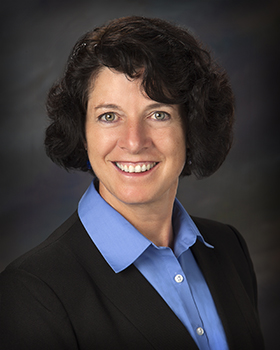
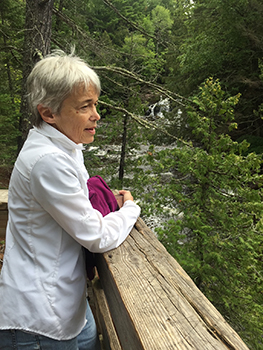
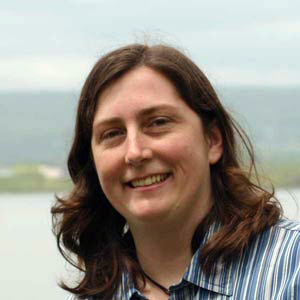 For Becky Sapper, the waters of Lake Superior are her lodestar; she has lived near them for 25 years. Based in Ashland, she directs the Wisconsin Master Naturalist Program, which in 2020 was honored with the Dave Engleson Award from the Wisconsin Association for Environmental Education. That award recognizes significant contributions to the field of environmental education having statewide, regional or national impact.
For Becky Sapper, the waters of Lake Superior are her lodestar; she has lived near them for 25 years. Based in Ashland, she directs the Wisconsin Master Naturalist Program, which in 2020 was honored with the Dave Engleson Award from the Wisconsin Association for Environmental Education. That award recognizes significant contributions to the field of environmental education having statewide, regional or national impact.